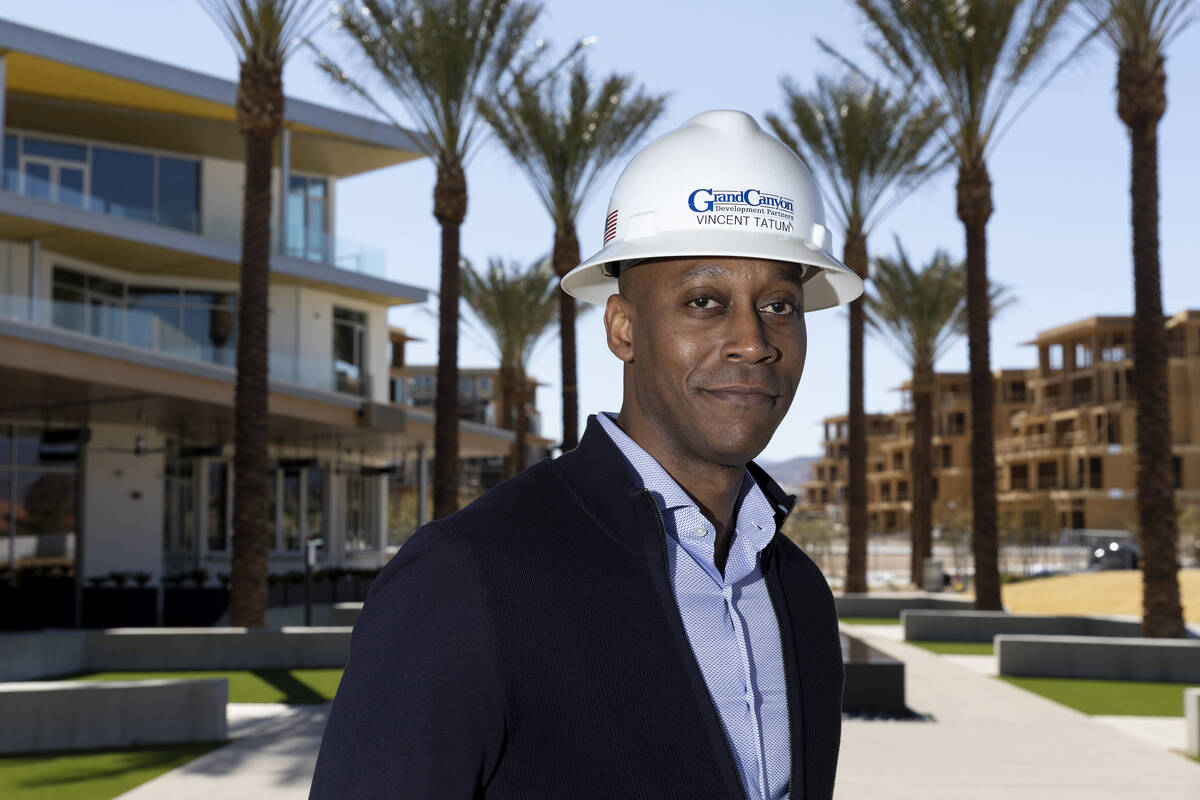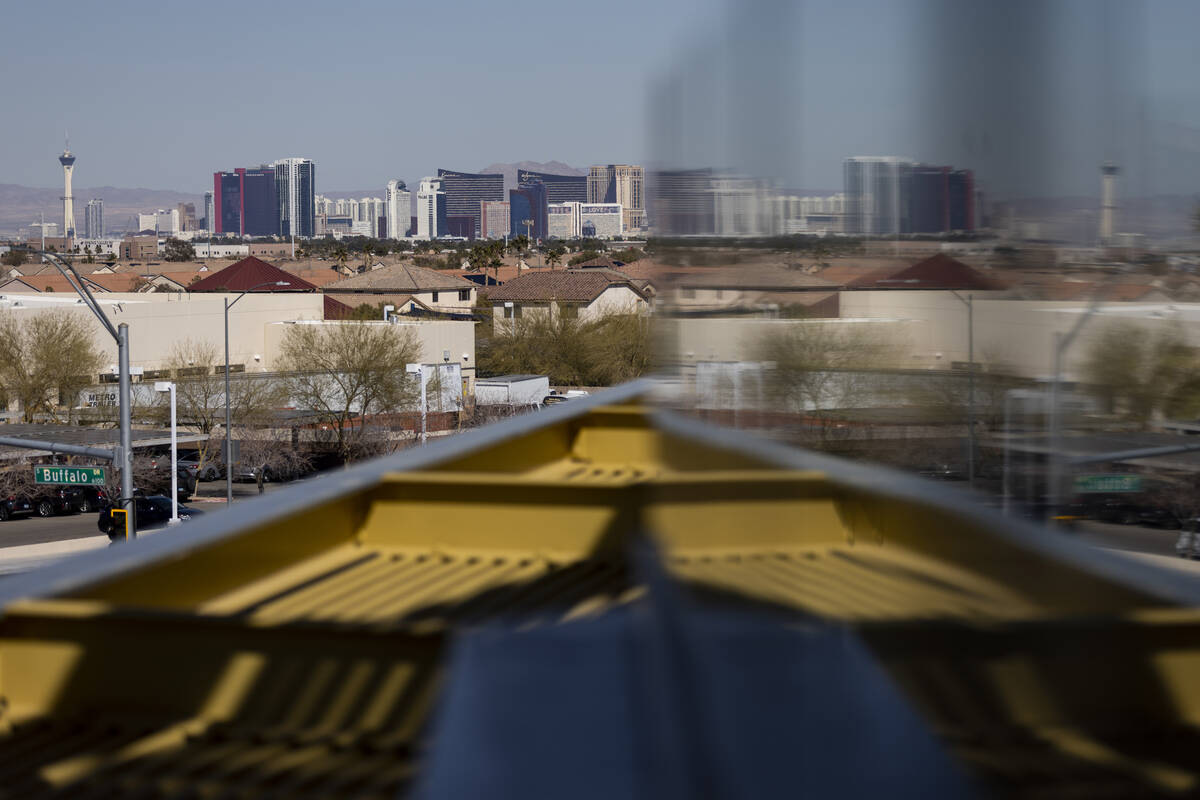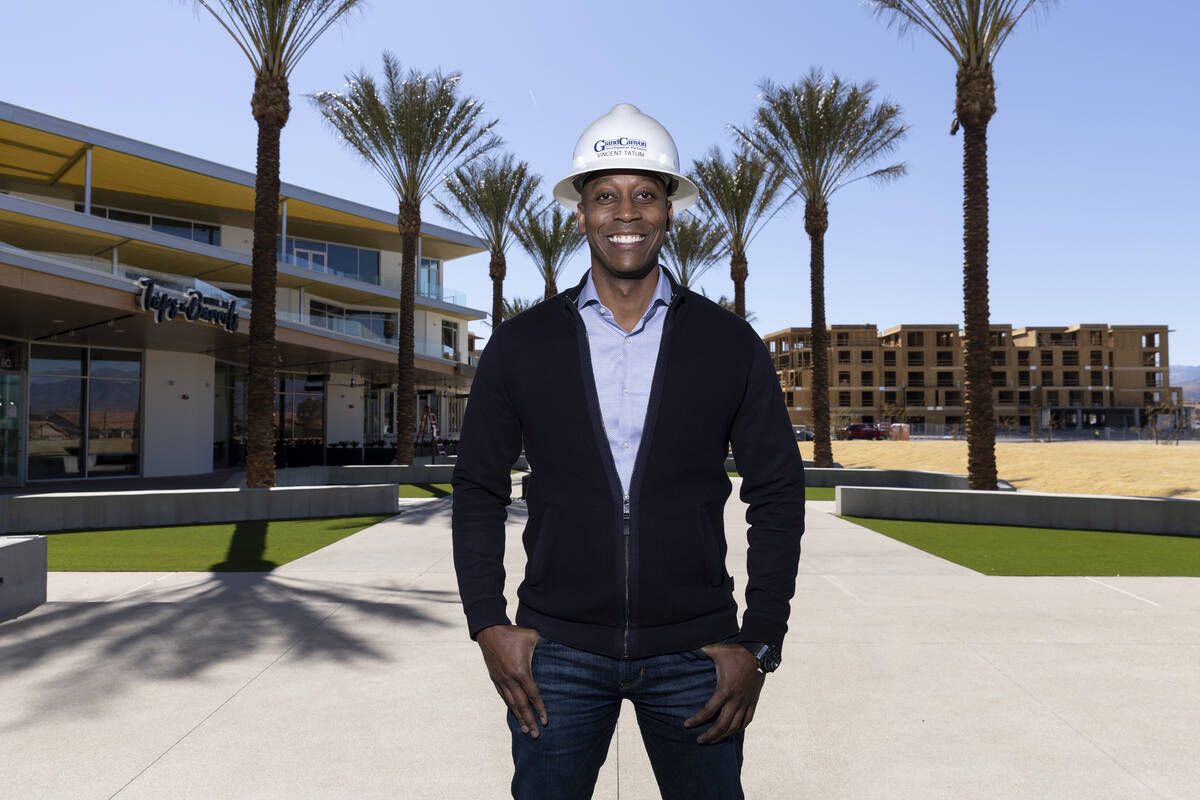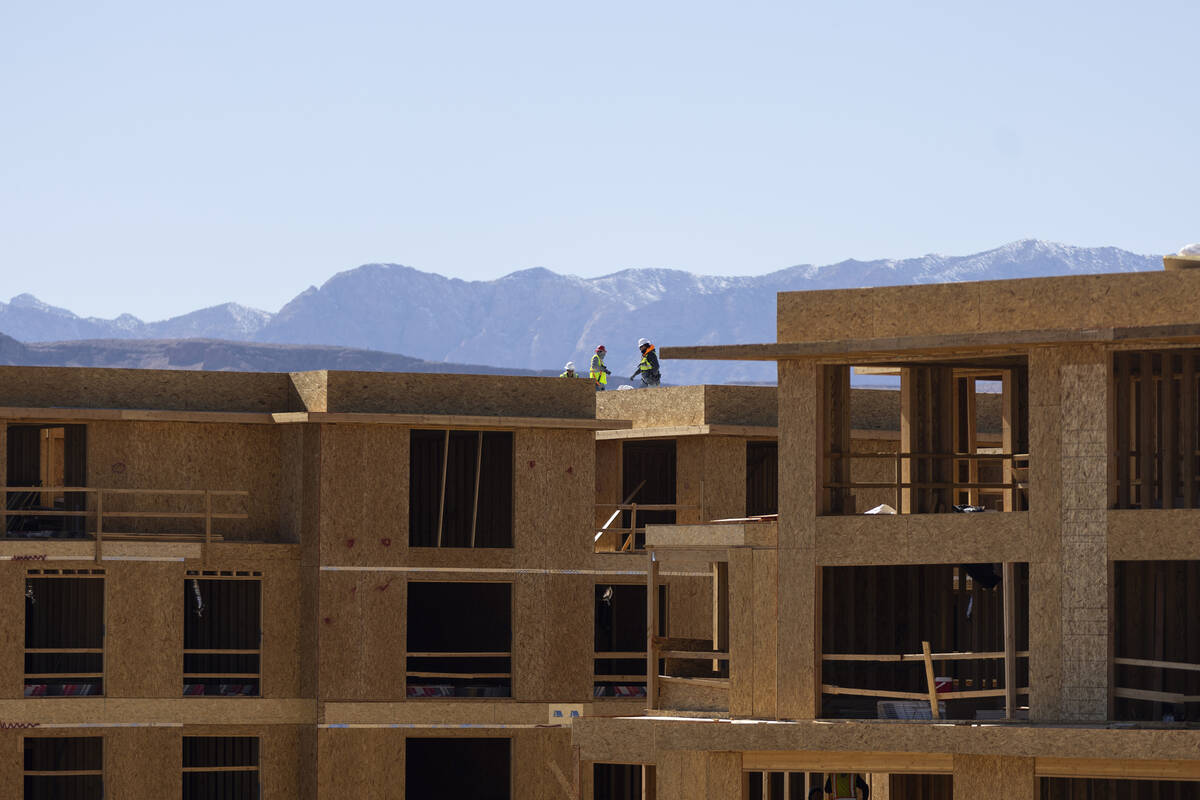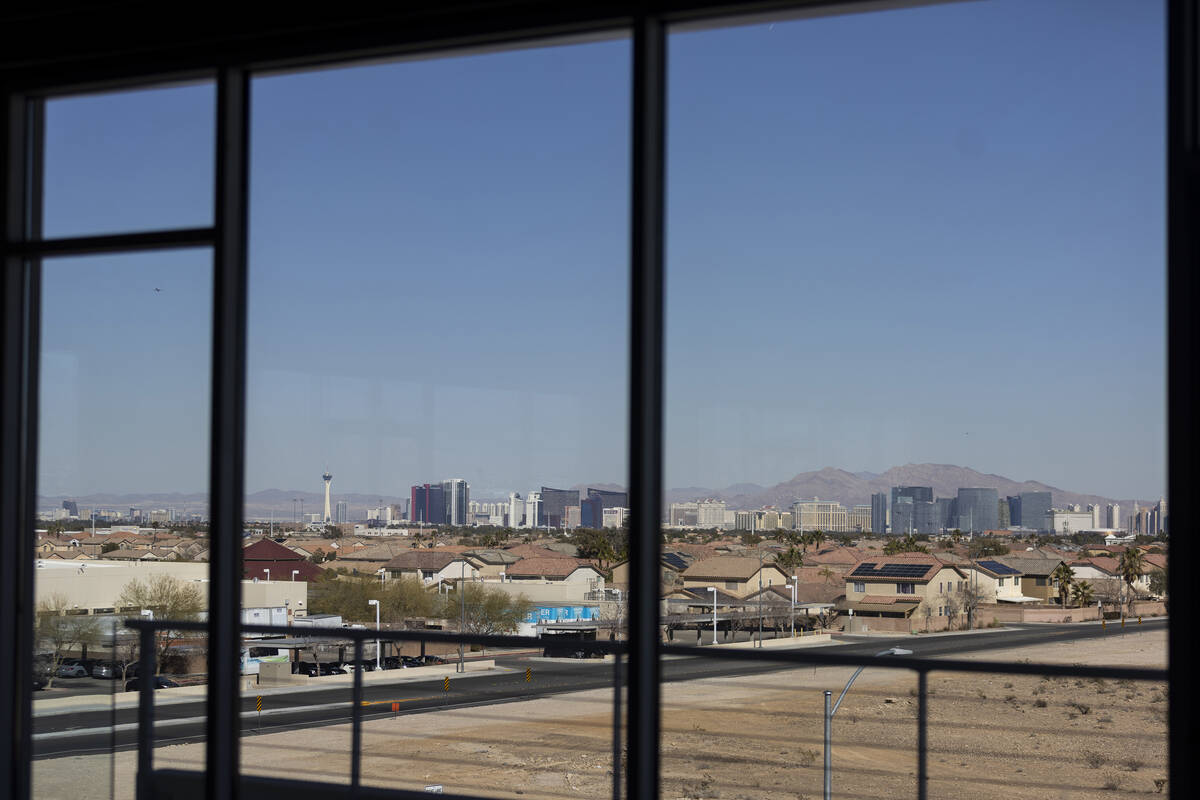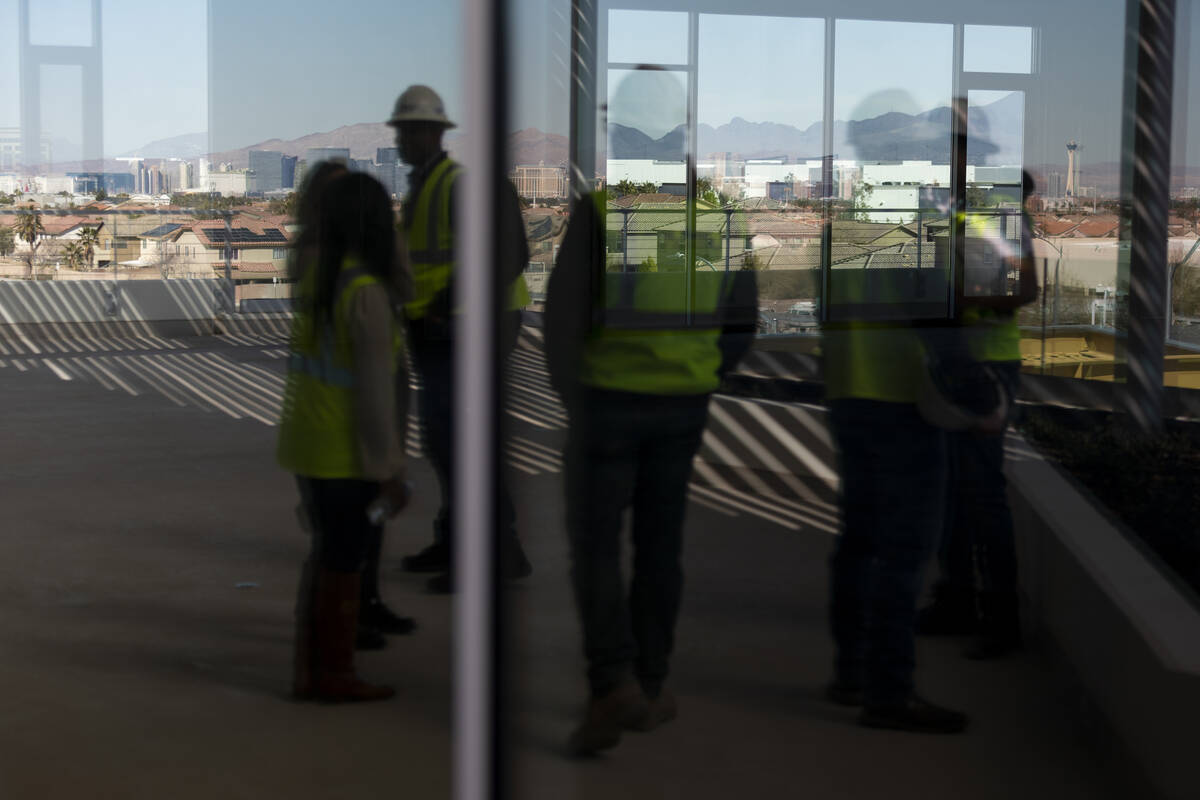Las Vegas real estate boss looks back on COVID fallout, recession
When Vincent Tatum moved to Las Vegas in 2006 to work in real estate, the market was in hyperdrive.
It didn’t take long before it all crashed around him.
After selling homes for several months, Tatum started working for the developer of the Manhattan condo complex south of the Strip and the ManhattanWest mixed-use project in the southwest valley.
The developer, Alex Edelstein, sold out Manhattan’s initial 700 units. But by late 2008, the economy was in a free fall and Edelstein halted construction on ManhattanWest, leaving Tatum without a job.
ManhattanWest was one of many real estate projects in Southern Nevada that got derailed by the Great Recession. It sat unfinished for years — a visible reminder of the meltdown — before new buyers picked it up at a discount, renamed it The Gramercy and completed it.
“It was very scary,” Tatum recalled of the project shutting down, noting “everything unraveled so quickly” for him.
Tatum, 43, didn’t bail on the industry and is now president of Grand Canyon Development Partners. The development management firm works on commercial real estate projects from the Strip to the suburbs, including office buildings, apartment complexes and casino-resorts.
Grand Canyon founder Sam Nicholson announced Tatum’s promotion in January, saying the new president had been with the firm for the last 10 years, been closely involved in all aspects of its projects and “played a vital role in the growth and trajectory of the business.”
Tatum, a Virginia native who studied international studies and Japanese in college, served in the Army before starting his real estate career in Southern Nevada.
He recently spoke with the Review-Journal about his career and the construction industry. This interview has been edited for length and clarity.
Review-Journal: What kind of work were you doing in the Army that made you want a career in real estate?
Tatum: I was a part of what was called a supply and services battalion. I was stationed in Japan at this time. We would construct facilities used for lodging, training, dining, all the common things you might need to facilitate a training exercise. I got a lot of exposure working with the Japanese engineering forces and the U.S. Army Corps of Engineers. I knew I wanted to do something involving real estate. Some of the fellow officers in Japan had been investing in real estate in Japan or the U.S. I knew that real estate was a vehicle to potentially build wealth. And that is about the extent of what I knew about the potential to do it as a career.
This was around the mid-2000s during the real estate bubble. Did you get a sense from the people you talked to in the military, did they say, “This is super easy.”
No. The timing is about right — this was all developing around 2005 — but it was not what I would call a get-rich-quick approach. It was really around the fundamentals. I was a 26-year-old young adult, still a kid, and I didn’t know what the bubble represented. I didn’t know what was causing it. I was not aware of what was really going on until I became a victim of it myself. I bought my first home in 2006. I tell people I’m pretty sure the day I bought was the day that the market crashed. I ended up going through foreclosure. It was a good lesson and wake-up call for me in terms of being aware of risk.
What got you interested in moving to Vegas?
I remember at the time the fastest-growing cities were Vegas, Phoenix, Atlanta and Miami. I really didn’t want to be on the East Coast. I wanted to do something different. I knew that whatever I wanted to do, I was going to have to make positive outcomes for myself. At the time, I’m living in Tokyo, and I liked the accessibility of having a big city, but I didn’t like the concept of being in a congested area. And I thought, Vegas seems on paper to have that — it’s got this image that transcends all over the world. I had never been to Vegas, ever.
What had you heard about the real estate market in Las Vegas?
I heard that Vegas had a lot of investment opportunities. I’d heard some stories about some people who had family or friends here that made a lot of money. All of this is around the residential sector. And my first real impression was, I can’t buy anything here. The pricing at the time was escalating so quickly. I had thought I was going to be out buying a beautiful starter home; I ended up with a condo conversion at Charleston and Durango.
What was your first job in real estate here?
I was briefly a real estate agent. And very quickly, I learned that I had no interest in anything related to residential. Decisions tend to get more complicated when you put in the emotion of selling or when someone is making the largest purchase of their life. It didn’t match my personality, which is matter-of-fact, let’s do the math. I ended up doing some of the high-rise products. I was a buyer’s agent exclusively. At that point, you’re starting to deal with a different mentality of people who had the disposable income to have these investment properties. You get access to people who begin to befriend you and share things with you. And it started to turn the light switch on, in terms of what real estate development actually meant.
People called the high-rise boom the “Manhattanization” of Las Vegas. Can you talk about the high-rise mania that was going on at that time?
To me, it was just people with money coming from all over the country who had the means to buy into this vision of high-rise living in a city that had the Strip environment. There wasn’t a whole lot of extra thought behind the why. But I remember the phrasing of the Manhattanization of Vegas. The first project I was ever a part of was the Manhattan condominiums. It was in 2007, and I’ve got to give Alex credit. He was very eccentric, very vision-oriented. I’m coming from a military experience — cut and dry, follow the book, traditionally no room for a lot of creative thought. This was my first time being around someone that had created wealth for himself by leveraging that visionary mentality. How that vision was executed was another story altogether, but it was my first chance to be coupled with a developer that had a vision with that startup mentality of “How do we pull this all off?”
When did you guys start to realize the economy is not going in the direction you want it to?
I was hearing things in the news. I was around when I heard calls from people asking to have their deposits returned. As I’m piecing it together, you hear the propaganda, you hear the rah-rah statements around the office. Sometimes we’re all guilty of operating in an echo chamber. You would hear things from real estate agents and brokers and other developers, “Oh, we’re turning the bend” and “Oh, that’s an isolated case.” The reality was, it wasn’t.
Alex was far from alone; developers all over the valley were pulling the plug on projects. What was the real estate market like when everything was imploding?
For me it was scary, in that everything unraveled so quickly. You’ve got a person who is establishing a new career, transitioning from a military background. You’re talking about a pretty brief window of when I was getting out of the Army to this time frame. It was maybe two years. I ultimately ended up only being unemployed for a couple of months; I was let go in December 2008 and then joined The Cosmopolitan of Las Vegas.
The Cosmopolitan was still under construction at that time.
Right. By the time I left, I was senior project manager responsible for all of the cost control. It ended up being a massive blessing in disguise. I had already developed a working knowledge of construction and development, but it was The Cosmopolitan where I got access to seeing how it all comes together on a much grander scale than something like Manhattan or ManhattanWest.
What were the projects you were working on at Grand Canyon at the time you joined?
It wasn’t that many; when I joined, I want to say I was employee No. 3. The two projects we had were Grand Bazaar Shops, in front of what was then Bally’s, and the Lucky Dragon hotel. That was it.
When the pandemic hit, at least initially, what happened to the pipeline of projects Grand Canyon was working on?
We had five different hotel projects we were working on at the time in Las Vegas. I was the project executive for the Drew, which is now back to being the Fontainebleau. That came to a screeching halt. All of the hospitality projects came to an end. We lost upwards of 20 to 30 percent of our staff within about a week with those hospitality projects.
I also wanted to ask about construction material costs and supply chain issues that came about because of the pandemic. How much of those disruptions have been resolved or are still lingering?
We have these conversations with our clients. We’ve pretty much dropped the reference to COVID to describe the disruptions; at this point we now just call them supply chain challenges. There are lead times and backlogs associated with manufacturing, and no one really has an answer as to why it’s always backed up. We certainly have measures that are responsible and reasonable ways to navigate around it. When you’re talking about a ground-up project, we’re seeing really long lead times on things like mechanical and electrical gear. We have a project where a generator was 62 weeks out; we’ve got one right now where it’s forecasted at 70 weeks — more than a year to get a generator. We’re seeing 40 weeks to get certain medium-voltage switch gear.
When you look at overall construction employment in Southern Nevada, last I checked it was still way below the peak from 2005, 2006. Do you think construction industry employment will ever get back to that?
I don’t know if Vegas will get back to those levels. I’m not sure if those levels were ever sustainable even back then. When you look at our neighbors in Arizona or other cities and states with major developments, that traveling workforce has a lot of options to go to places like Reno or Phoenix or other markets and make a very good living for themselves. When we talk about supply chain, we often think of materials; many people don’t think about the actual labor workforce. You have to have people to build these things. Even if you’ve got all of your equipment sitting there, if you don’t have the people, then what good is it?
Contact Eli Segall at esegall@reviewjournal.com or 702-383-0342. Follow @eli_segall on Twitter.



